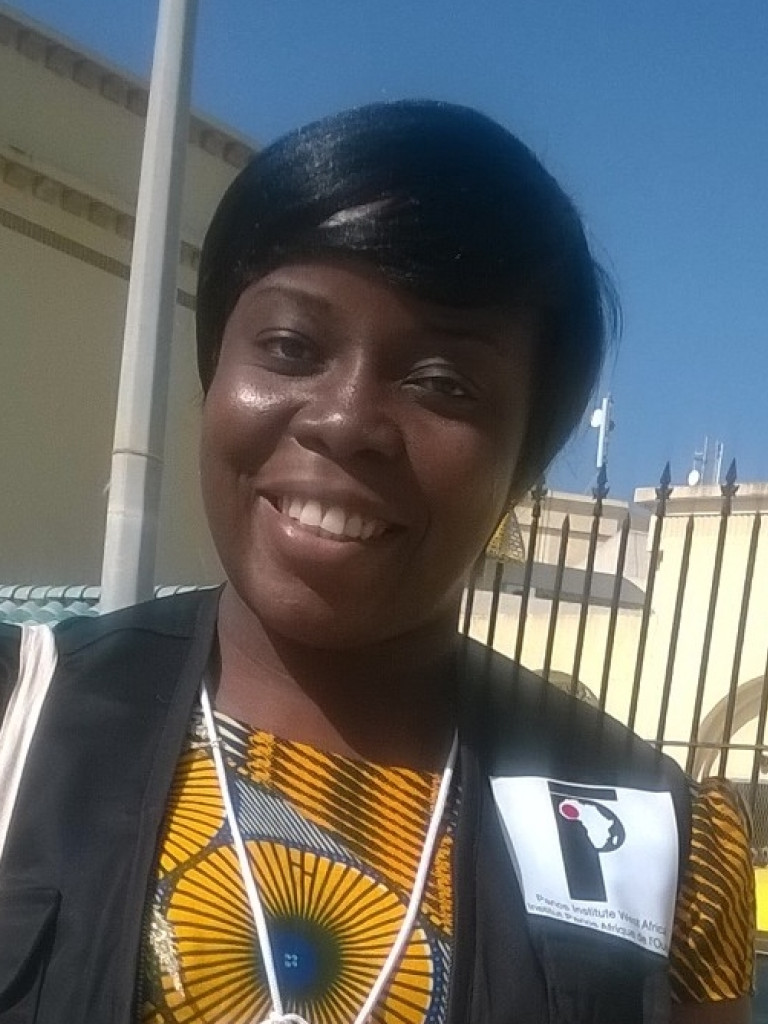
Folashade Grace Adebayo
- 2015
- Press Fellow
Folashade Adebayo is a Nigerian journalist with Punch, the most widely read newspaper in Nigeria. The award-winning journalist covers science, health and education stories beats. She has reported many health topics but the highlight of her career was covering the Ebola Virus Disease, which killed mostly medical workers in Nigeria. She is the current recipient of the Nigeria Academy of Science Reporter of the Year. 1. Why did you choose to become a science journalist? Being a science journalist for me was not by choice. It was a beat I was assigned to me by my former employer and it was a beat I covered for 10 years prior to joining Punch Newspaper. However, it became a natural habitat for me because I was a science student in High School and would have even been a nurse if I had made good grades in Chemistry. I found myself drawn to health and science stories because of its direct impact on the quality of lives of many people. The human angle stories, the quantum of money earmarked for the sector, the makes it a constantly intriguing part of my career. 2. What role do science and science communication play in your country? My country is politically-driven, so science and science communication have had to fight for attention. There are many Nigerians making inventions and innovations but the products are still stuck on the laboratory shelves. Nigeria has dozens of research institutes but we are yet to be able to take the lead in proffering solutions to some of the tropical diseases such as sickle cell (which primarily targets people of African descent), the West African strain of HIV, poliomyelitis and even the Ebola Virus Disease. So, I would say, the influence of science in Nigeria is at the peak at the moment. 3. What speakers or topics of this year’s Falling Walls events are you most looking forward to? And why? I am looking forward to all the speakers because I believe that they all have different and unique perspectives to add to the conference. However, I am particularly looking forward to listening to Emmanuelle Charpentier, of the Max Planck Institute for Infection Biology. This is because Nigeria and indeed West Arica has experienced the outbreak of the Ebola Virus Disease and the region is not immune to future epidemic. Ebola itself is a disease that is not yet fully understood and I would like to find out If there are other subtle methods of contracting the virus that the public in my country should know about. I am also looking forward to listening to Wolfgang Ketterle from the Massachusetts Institute of Technology mainly because the MIT is renowned for research and innovations. There is also Johanna Wanka from the German Federal Ministry of Education and Research because I also cover education and would like to know how Germany has closed the gap between education and research. 4. In your opinion, which are the walls that will have to fall in science and society within the next five years? I would say the next wall to fall in science is HIV/AIDS. More than 30 years after the disease was diagnosed, it is becoming more obvious that the end of the scourge is nearer than ever before. A functional cure for the German patient, Timothy Ray Brown and a couple of other patients is one of the first lights in the horizon. The miracle of Truvada and the discovery of a protein which can stop the virus from further replicating in the human system are also big leaps indicative that a cure is in sight.